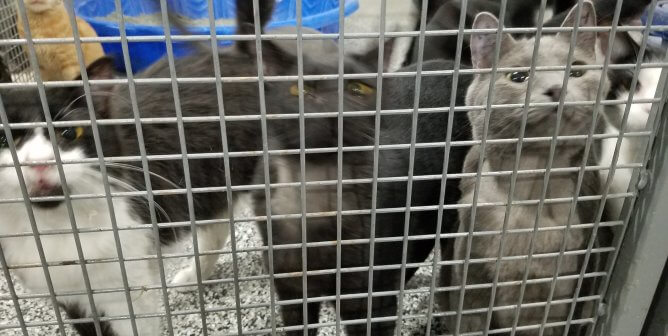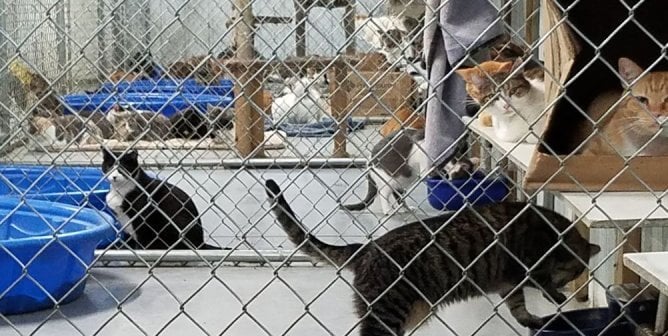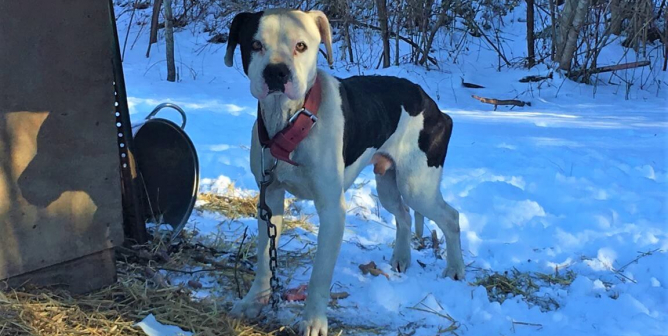Facts on Guinea Pigs
Perhaps because of the perilous misconception that guinea pigs, or cavies, make great “starter pets” for children, these fragile beings along with other small exotic animals—such as hedgehogs, sugar gliders, prairie dogs, jerboas, and spiny mice—are popular “pocket pets.” Despite their popularity, guinea pigs aren’t worth as much as a bag of dog food to the stores that peddle them. Pet stores’ negligent policies often result in cruel mistreatment of guinea pigs. PETA has received reports of guinea pigs who were sick but didn’t receive veterinary care at the instruction of pet store managers and animals who were shipped to pet stores when they were too young to be weaned, who had fungus around their eyes and noses, whose habitats were teeming with mites, and who died because of mistreatment and neglect.
How to Spot Neglect
Look for the following signs of neglect:
- Swollen feet, runny eyes, lethargy, rashes, sores, bruises, hair loss, lice, or matted fur
- Cages that are filthy, in direct sunlight, or have mesh floors, which can trap small feet and are uncomfortable
- Room temperatures below 70 degrees or above 90 degrees (Guinea pigs can easily develop respiratory infections if the temperature drops below 65 degrees.)
- A lack of food or clean water
See PETA’s factsheet “Pet Shops: No Bargain for Animals” for more information about alerting authorities to possible abuse or neglect.
Adoption
If you’re willing to open your home to a guinea pig, please adopt from a shelter or rescue group—you can find a list here. Before you adopt, be prepared to care for your guinea pig for seven years or more and to spend about $20 per week on food, hay, bedding, and other supplies. An exotic-animal veterinarian will need to see your guinea pig annually and can help with regular nail trimming—a must. If you’re housing a male and a female guinea pig together, make sure the male is sterilized at least a month before the animals are introduced. However, spay/neuter surgeries are more dangerous procedures for small animals. So it’s preferable to house females with other females and males with no more than one other male—three or more males together may fight.
Provide guinea pigs with the following:
- High-quality, soft timothy or orchard grass hay for nesting and grazing (For young, pregnant, or nursing guinea pigs, a small amount of alfalfa hay can also be added.)
- A heavy ceramic or glass food bowl and Timothy hay–based guinea pig pellets (Keep them in an airtight storage container.)
- Small amounts of a variety of vegetables, such as sweet peppers, cilantro, carrot tops, or greens/lettuces
- A source of vitamin C, which is available in various forms from pet supply stores (Oxbow makes vitamin C treats that are palatable and easy to dose.)
- Chew/enrichment toys for guinea pigs or rabbits that are made by a reputable brand, such as Oxbow
- A spacious enclosure (Virtually all cages sold at pet supply or large chain stores are inadequate. You can find appropriate cages for sale as well as ideas and materials for making a low-cost large enclosure by searching for “C&C cages” online. Look for one that will provide at least 2.5 by 5 feet of space per pair of guinea pigs—but the larger, the better.)
- Daily enclosure cleanings (Remove all soiled substrate, and wipe dirty areas with vinegar.)
- Daily exercise in a safe, securely enclosed room
- Fresh water in both a water bottle and a heavy ceramic or glass bowl (Water should be changed daily.)
- Hiding places (at least one per guinea pig) such as huts, houses, and tunnels made of wood, plastic, grass, or vegan fleece
- Bedding such as vegan fleece, towels, or handmade cage liners; odorless aspen shavings (or pine shavings that are kiln-dried and have no discernable pine scent, which can cause respiratory infections); or paper bedding made for small animals
- Weekly brushing for long-haired guinea pigs
Resources







